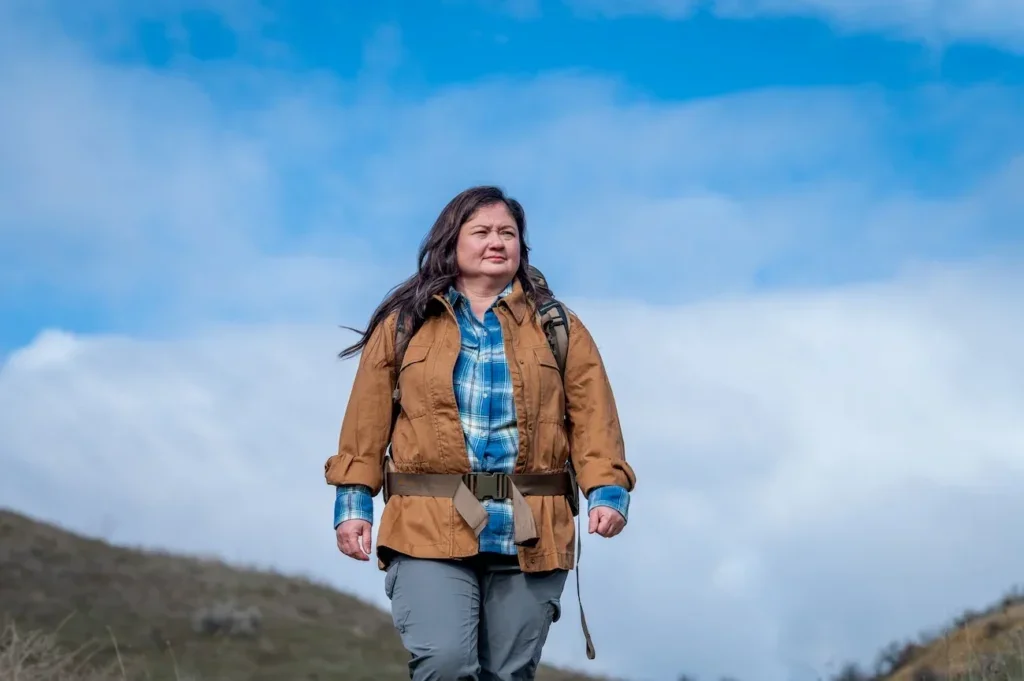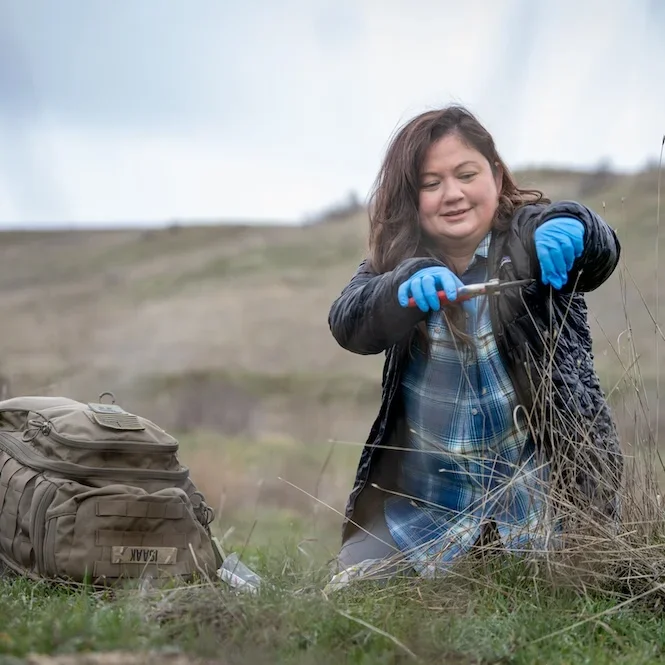
Catherine Isaak’s deep connection to the natural world began at a young age. The first generation college student was the kind of kid who loved animals, no matter the species. She climbed trees, collected bugs, feathers, even bones. “I’ve always had a curiosity about how the world works on a scientific level,” she said.
Her grandmother, Josephine Tharpe, was an early influence. Tharpe cultivated Isaak’s love of reading and taught her to craft and bake.
“My grandmother didn’t go to college. She was a stay-at-home mom, a quiet church lady. But if you watched ‘Jeopardy’ with her, she could answer all the questions and beat everyone to the buzzer. I thought that was so cool,” Isaak said. “She was a ‘Jeopardy’ savant.”
Today, Isaak (BS, biology, 2022, high honors) is a graduate student working in the lab of Professor Jennifer Forbey. She studies the diet and body composition of chukars, the non-native game bird, to reveal clues about the health of the habitat they share with native species like the greater sage-grouse. Boise State uses this research in the classroom and shares it with the Idaho Department of Fish and Game to inform wildlife management.
Isaak’s academic accomplishments include a fellowship from the Higher Education Research Council. The fellowship provided a stipend for her to work in Professor Jennifer Cruz’s lab studying why the aplomado falcon (an endangered falcon reintroduced by Idaho’s World Center for Birds of Prey) was not thriving in South Texas. One possible reason? Great horned owls feeding on the falcons and their young. Isaak analyzed thousands of hours of sound data to detect the presence of owls near falcon nesting platforms.
While researchers need more information to confirm the relationship between the owls and falcons, Isaak was the first student to analyze sound data. She also received an Established Program to Stimulate Competitive Research post-baccalaureate fellowship from the National Science Foundation to study the greater sage-grouse with Forbey.
“I’ve been so lucky at Boise State to meet wonderful scientists, to experience wildlife research and scientific lab work,” she said.
Finding the best path

Isaak’s academic success comes at the end of a non-traditional road. She was born in South Korea. Her mother is from there and met her father when he was serving in the military. Isaak grew up in Florida, graduated high school, earned scholarships and enrolled in the University of Colorado, Colorado Springs, when she was 17. When doctors diagnosed her grandmother with brain cancer, Isaak left college to care for her. At age 19, having lost her scholarships, Isaak joined the U.S. Army Reserve, becoming the fourth generation of her family to serve in the military. She spent two decades as a military medical lab technician. Through her many years of service, Isaak’s desire to earn a degree and pursue science never waned. In 2017, she applied to Boise State.
Isaak studied with Amy Ulappa, a clinical associate professor in the Department of Biological Sciences. Later, she became Ulappa’s teaching assistant.
“One of Cat’s strengths is that she thinks about what she needs and asks for it. She talks to multiple people to build relationships and find her best path,” Ulappa said. Isaak is a strong student, she added. That didn’t mean everything came easy. “Cat takes struggles head-on. She asks, ‘What can I do to solve this?’ That’s what’s made her a success.”
Ulappa said that Isaak was generous with her expertise as a teaching assistant. “Cat helped people figure out how to learn in a way that worked for them. And she let them know that it’s OK if things are hard.”
A culture without fear
Boise State, Isaak said, has provided her a sense of community and the knowledge that she’s in the right place.
She volunteered alongside alum Jamie Utz, a biodiversity biologist at the Idaho Department of Fish and Game, to relocate nuisance beavers to safer locations and helped out at the Campus Food Pantry. Isaak supported her fellow veterans by writing new student government legislation that designated students’ short-term military absences as “official” absences.
“The culture at Boise State allows you to ask questions without fear,” Isaak said. “Never be afraid to be curious and challenge the status quo. Most people, going back to Boise State’s gracious community, will ask for your input and knowledge. That’s the only way things change.”
– By Anna Webb